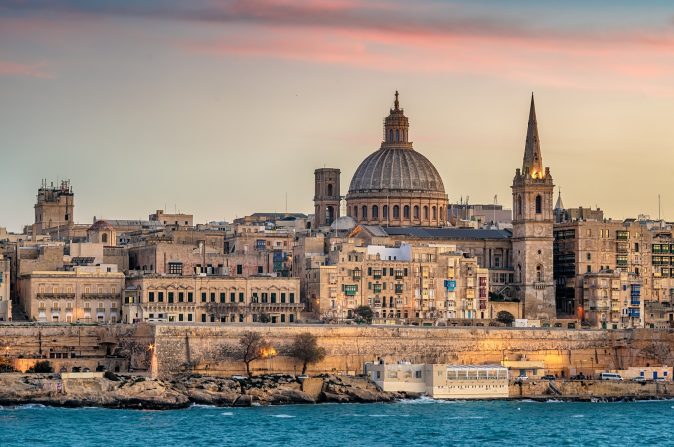Economy / Malta
How Malta is charming some of the world’s finest technologies
Malta has become the European centre for all disruptive technologies and leads the way forward in tech and innovation.

From AI to Fintech, the Internet of Things, blockchain or iGaming, Malta has become the European centre for all disruptive technologies and leads the way forward in tech and innovation.
There are very few places as attractive as Malta as a place to live, study or work. This sunny, small, smiling archipelago surrounded by the Mediterranean Sea offers most of the luxuries one could look for in a place to build a life, from an agreeable weather, to a thriving cultural and social life, and a 7,000-year long history to explore.
With a consistent rate of around 6% average annual GDP growth over the last five years, access to the EU market, and one of the most business-friendly legal frameworks in the EU, not to say the world, another thing that Malta offers is economic opportunity.
“Our growth rate in the past several years is three times the average European rate. The reasons behind this success are threefold. Firstly, Malta has a hard-working, well-trained, and well-educated workforce. Furthermore, led by a pro-business oriented government, Malta has created the ambiance and the structure to welcome FDI by offering favourable incentives for private companies that want to invest here. Over the last few years, we have had success with FDI in a vast area of sectors, which brings me to the third pillar of our success, our diverse economy”, Christopher Fearne, Malta’s Deputy Prime Minister and Minister for Health, told TBR.
Indeed, Malta has managed to build the ideal landscape to foster growth. For businesses, that means favourable fiscal terms and licensing simplicity with state-of-the-art infrastructure and good connectivity. Financial services, maritime services or tourism, are all thriving sectors, but the tech sector in particular found a safe and fertile ground in Malta.
Nowhere else on the planet has policy-making been driven by innovation as much as here. Unsurprisingly, newly established industries like medical cannabis, artificial intelligence (AI) or cybersecurity have already found its European home in this small island nation. AI in particular is the government’s most recent innovation bet, with a wide-ranging strategy to position the country at the centre of this disrupting technology.
The same seems true for the emerging medical cannabis industry. After passing swift and comprehensive regulation on the sector, Malta has quickly begun to attract the interest of many companies wanting to invest in the sector and tap into the growing European market. Exports should start as early as 2020 and according to the government’s estimates, the country could be exporting more than 1 billion dollars worth of medicinal cannabis and create as many as 900 jobs by as early as 2023.
If past experiences should serve as a prediction for how these sectors will develop, success is all but guaranteed. As the first country to properly regulate and open its doors to the online gambling industry, this Mediterranean island-state has become a global giant. Today, the iGaming industry contributes 12% of the country’s GDP. Other tech specialties have also flourished in the country. Indigenous and foreign start-ups, lured by low taxation and the country’s many natural attractions, have taken roots in Malta like nowhere else in the EU. It is not by chance that Malta became known as the “blockchain island”, as the country was perhaps the first and certainly the most efficient in the world to set up a clear and attractive legal framework for this emerging technology.
At the same time, Malta has bet on its people, to assure that all Maltese could benefit and participate in the development of these future-looking industries. Considerable efforts have been put in expanding the higher-education sector by promoting the establishment of universities and courses focused on technology and these new emerging sectors. Updating university curricula has also been part of the strategy, with the Malta College of Arts, Science and Technology offering an iGaming degree, for instance. The high standards of education, combined with a close interaction with the private sector and high living standards, have made Malta one of the most attractive places in Europe for students wanting to develop their academic paths at the Masters and PhD levels.
It is this business-friendly forward-looking technology-driven approach that has brought Malta a decade of unparalleled economic growth and turned it into the success story that it is; and it is this same approach that will ensure this small Mediterranean archipelago is at the very centre of whatever the future has to bring.
